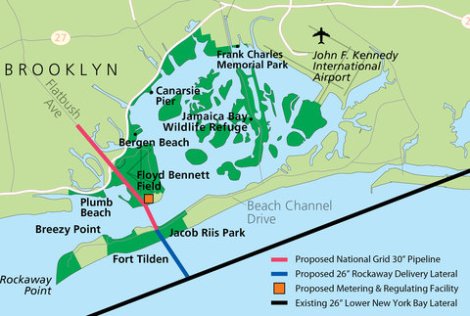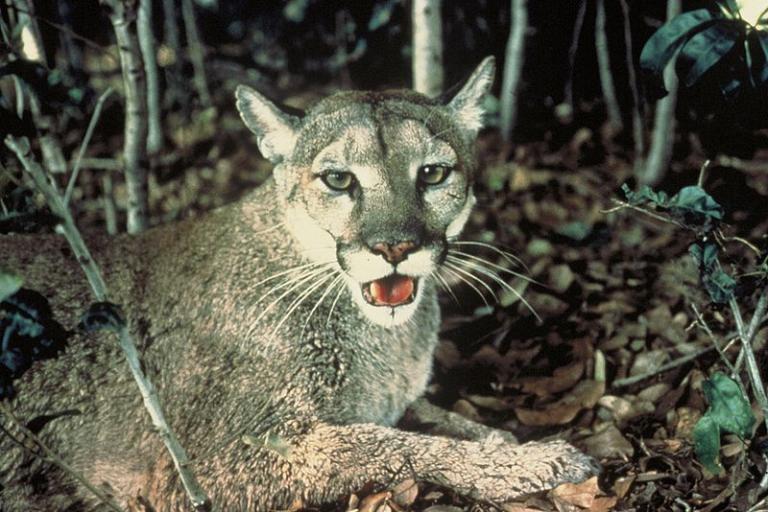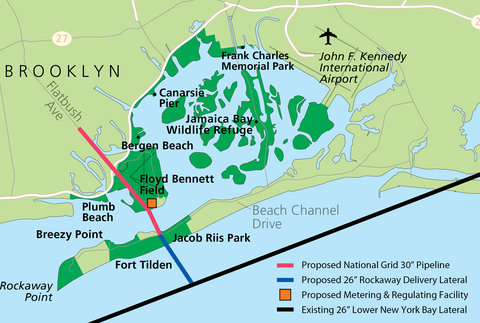This is a tricky one for environmentalists and urban advocates: Should New York City build a new gas pipeline?

The proposed location of the pipeline.
A proposal recently approved by the city would run a 30-inch pipeline along Flatbush Avenue in the southeastern part of Brooklyn — an almost completely uninhabited part of the borough near Floyd Bennett Field, the first municipal airport in New York. Built by the Williams Companies, it would connect to an existing offshore pipeline — meaning digging up the floor of the ocean for installation.
[I]n light of recent pipeline leaks and explosions, environmental advocates and Brooklynites worry that the pipeline could damage fragile ecosystems, create safety hazards and compromise Brooklyn’s biggest piece of national parkland, Floyd Bennett Field. And the planning process itself has drawn criticism from community groups who say it has not been open enough to public review.
National Grid, the utility that delivers gas to Brooklyn, says that as the need for natural gas grows, the system must be expanded. “Brooklyn hasn’t seen a new delivery point in 50 years,” said John Stavarakas, National Grid’s director of long-term planning and project development. “We are at capacity.”
Until environmental impact studies are done, though — especially on the ocean, where the pipeline calls for more invasive digging than on the bay side — many environmentalists are withholding support.
“If we don’t reduce greenhouse gases, then the Jamaica Bay marshes will end up under water anyway,” said Glenn Phillips, executive director of New York City Audubon. “But the temporary disturbances could be very damaging to this place, which is critically important for birds, horseshoe crabs and fish.”
Mayor Michael Bloomberg has recently made natural gas something of a pet cause; he advocates more use, but is pushing for better regulation of fracking. The residents of the city he runs are less sanguine.
[T]he Coalition Against the Rockaway Pipeline and other critics point to Williams’s safety record and worry about an explosion in a national park or in a densely packed neighborhood. The company’s pipelines have exploded or ruptured in the last few years in California, Maryland, Mississippi, Ohio and Texas. There was a major Williams pipeline explosion in Alabama last December, followed in the spring by an explosion in a Williams gas compressor station in Pennsylvania and a leak in a Williams pipeline in Bergen County, N.J.
Making the political calculus easier for the mayor: Bloomberg is unable to run for another term.



